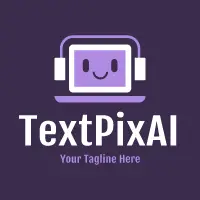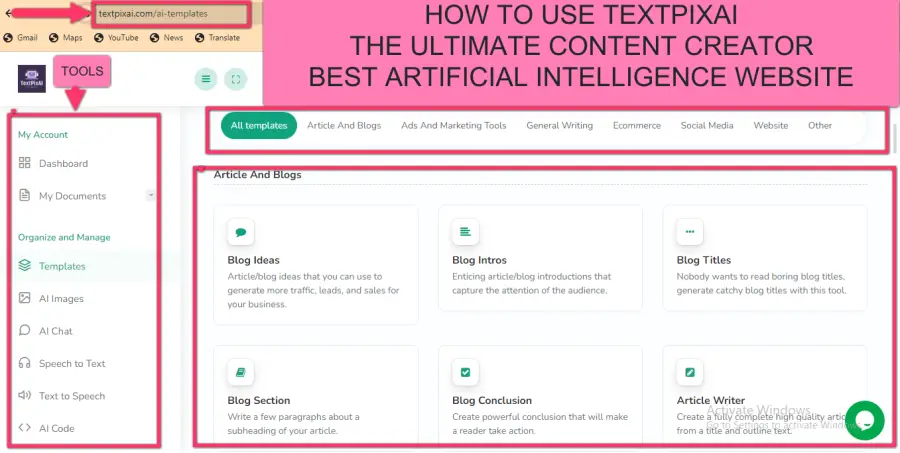Quantum AI: A Comprehensive Guide
Introduction
Artificial Intelligence (AI) has made remarkable strides in recent years, revolutionizing industries, powering chatbots, optimizing supply chains, and even making autonomous vehicles a reality. Yet, it has long been constrained by the limits of classical computing. Complex problems like simulating quantum physics, optimizing large-scale logistics networks, or deciphering the human genome often lie beyond the computational reach of classical machines.
You may also like to read:
Future of AI: A Comprehensive Guide
However, a new era is dawning in the world of AI - one that combines the might of quantum computing with the intelligence of machine learning. Welcome to the world of Quantum AI, where quantum computing and artificial intelligence intersect to unleash unprecedented computing power.
In this comprehensive exploration, we will delve into the intricacies of Quantum AI, striving to understand its foundational principles, the vast array of potential applications it offers across various industries, the challenges it faces, and the tantalizing glimpses it provides into the future of computing.
Chapter 1: Quantum Computing Fundamentals
To embark on our Quantum AI journey, it is imperative to fathom the fundamental principles that underpin quantum computing.
Quantum Bits (Qubits)
Our classical computers are built on bits that can be either 0 or 1. In contrast, qubits, the building blocks of quantum computing, exhibit a fascinating property known as quantum superposition. This allows qubits to exist in multiple states simultaneously, exponentially expanding the computational possibilities.
Entanglement
Quantum entanglement is a phenomenon where the properties of two or more qubits become correlated, irrespective of the physical distance separating them. This entanglement enables qubits to work in harmony, performing parallel computations that classical bits can only dream of.
Quantum Gates
Much like classical logic gates, quantum gates are the essential components for quantum computing. They manipulate qubits through operations like NOT, AND, and OR. Understanding these gates is crucial for crafting quantum algorithms.
Chapter 2: Quantum AI's Potential
Quantum AI holds a treasure trove of potential applications across a multitude of sectors, promising to outperform classical AI in various domains.
Quantum Machine Learning
Machine learning, a cornerstone of AI, stands to benefit immensely from quantum computing. Quantum machine learning algorithms are expected to facilitate faster training times and the resolution of complex problems that currently defy classical computers.
Optimization Problems
Optimization is a pervasive challenge in diverse industries, from supply chain management to financial portfolio optimization. Quantum computing offers a glimmer of hope by rapidly finding optimal solutions, saving both time and resources.
Drug Discovery
The healthcare and pharmaceutical sectors eagerly anticipate the application of Quantum AI in drug discovery. Quantum algorithms can simulate molecular interactions with unprecedented precision, potentially speeding up drug development and saving countless lives.
Chapter 3: Challenges and Limitations
While Quantum AI brims with potential, it is not devoid of hurdles and constraints that demand attention and innovation.
Hardware Constraints
The fragility of qubits poses a formidable challenge. The quest for quantum error correction and the extension of qubit coherence times are ongoing endeavors to stabilize quantum computers.
Scalability
Scaling quantum computers to tackle real-world problems remains a significant obstacle. Quantum algorithms must adapt to harness the power of larger quantum processors effectively.
Quantum Supremacy
The notion of quantum supremacy, where quantum computers surpass classical ones in specific tasks, remains a subject of rigorous debate. Achieving and demonstrating quantum supremacy is a complex endeavor.
Chapter 4: Real-World Applications
Quantum AI is not confined to theoretical realms; it is gradually infiltrating real-world applications with tangible benefits.
Cryptography
Quantum computing poses a potential threat to classical cryptographic methods. Consequently, researchers are actively developing quantum-resistant cryptography to secure communications in a post-quantum world.
Financial Modeling
In the world of finance, quantum computing can optimize complex financial models, enhancing predictive accuracy and risk management, thereby bolstering the stability of financial markets.
Materials Science
Quantum simulations empower materials scientists to design new materials with extraordinary properties. These innovations hold promise for the electronics, energy storage, and aerospace industries.
Chapter 5: Preparing for the Quantum AI Era
As Quantum AI looms on the horizon, proactive measures are essential for both individuals and organizations to harness its transformative potential.
Quantum Education
Educational programs and courses on quantum computing and Quantum AI are indispensable. They play a pivotal role in equipping the workforce with the skills to navigate this revolutionary era.
Quantum-Ready Businesses
Businesses must assess how Quantum AI can impact their operations and devise strategies to leverage its capabilities effectively. Proactive adaptation is the key to staying competitive.
Ethical Considerations
The increasing power of Quantum AI raises ethical concerns, particularly in the realm of encryption-breaking and security. It necessitates thoughtful regulation and ethical considerations.
Chapter 6: The Quantum AI Future
The future of Quantum AI is a tantalizing prospect, promising to redefine the boundaries of computing and human knowledge.
Quantum AI Supercomputers
Supercomputers fueled by quantum processors have the potential to revolutionize scientific research. They could vastly improve weather forecasting, unravel the mysteries of the universe, and expedite drug discovery.
Quantum Internet
The advent of a quantum internet could usher in an era of unparalleled security in communications. Quantum key distribution ensures that messages remain confidential, even in the face of quantum attacks.
Quantum AI in Everyday Life
Quantum AI may become an integral part of our daily lives. From personalized medicine to energy-efficient transportation systems, its influence will be pervasive and transformative.
Chapter 7: Resources for Exploring Quantum AI
To dive deeper into Quantum AI, here is a curated list of resources for enthusiasts, researchers, and curious minds:
-
Books:
- "Quantum Computing: A Gentle Introduction" by Eleanor G. Rieffel and Wolfgang Polak
- "Quantum Computing for Computer Scientists" by Noson S. Yanofsky and Mirco A. Mannucci
-
Online Courses:
- "Quantum Machine Learning" on Coursera
- "Introduction to Quantum Computing" on edX
-
Research Papers:
- "Quantum Computing in the NISQ era and beyond" by John Preskill
- "Quantum Algorithm Implementations for Beginners" by Eleanor G. Rieffel
-
Websites:
-
Conferences:
- Attend quantum computing and Quantum AI conferences like Qiskit Camp and Quantum.Tech.
Conclusion
The fusion of quantum computing and artificial intelligence in Quantum AI heralds a new era of computational power and problem-solving capabilities. As quantum technologies advance, Quantum AI's transformative influence will ripple across industries, reshape our daily lives, and challenge our understanding of what is computationally possible.
Embracing this future entails not only technological adaptation but also ethical considerations and educational initiatives. The promise of Quantum AI is boundless, and those who navigate this brave new world with knowledge and innovation will shape the course of AI's future. Quantum AI isn't just the next evolution of computing; it's a quantum leap.
So, fasten your seatbelts and embark on this exhilarating journey into the future - a future where Quantum AI reigns supreme, unlocking the mysteries of the universe, revolutionizing industries, and reshaping the world as we know it.
References:
- "Quantum Computing and Artificial Intelligence: How will quantum computing impact AI?" - IBM
- "Quantum Computing and AI: The Deep Dive" - CIO Review
- "Quantum AI: The next frontier in artificial intelligence" - VentureBeat
- "Quantum AI: The Future of AI and Quantum Computing" - The Quantum Daily
- "Quantum Computers for the Millions" - MIT Technology Review







